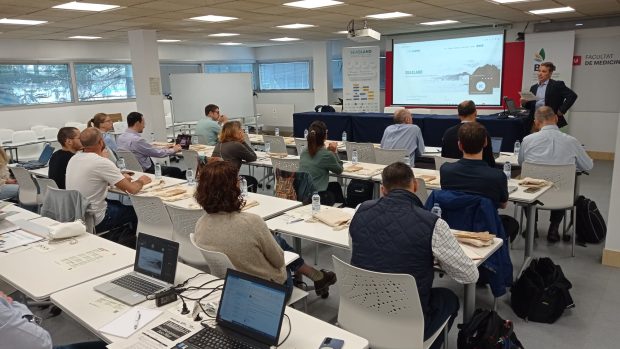BETA TC ‘Workshop’ to present the results of the Mediterranean pilot of the SEA2LAND project
This project works to design new ways of valorisation of by-products from the fishing industry to obtain high added value biofertilizer products

This week, the BETA Technology Centre of the UVic-UCC and the Maritime Network of Catalonia BlueNetCat have co-organised a workshop in Vic to present the results of the Mediterranean pilot plan of the SEA2LAND project.
This project, funded by one of the latest calls of the Horizon 2020 Programme, works to design new ways of valorisation of by-products from the fishing industry to obtain biofertiliser products with high added value. In doing so, it seeks to improve the sustainability of this sector and, at the same time, contribute to adjusting the balance of nutrients between the different regions of Europe, especially those with the greatest deficiencies.
During the workshop, the participants had the opportunity to learn about the results of the Mediterranean pilot plan, which was mainly carried out at the centre’s facilities. In addition, dialogue was promoted between the different actors involved, with the aim of fostering collaboration and the exchange of knowledge. The meeting has also allowed them to work collectively on the definition of possible viable business models that allow the commercialisation of the fertiliser products obtained.
Regional mapping
With this objective in mind, the SEA2LAND consortium, led by the Basque research institute NEIKER, has designed seven pilot schemes, combining up to nine different technologies. These pilot schemes are distributed across different areas representative of the different realities of the fishing and aquaculture industry in Europe.
The project is also carrying out a comprehensive mapping of regional nutrient mismatches and the needs of the most nutrient-deficient regions, as well as agronomic potting of the resulting products to ensure their efficacy and benefits for agricultural production. Another key aspect of SEA2LAND is sustainability analysis: part of the research being carried out is to quantify the environmental impacts, social viability and economic aspects to ensure the sustainability of the new practices implemented and to ensure the generation of benefits for all stakeholders involved.
